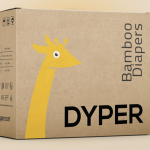4 Ways to Prepare Together
When it comes to a successful postpartum journey, one of the most critical things is strong partner support during breastfeeding. Research has shown that having a supportive partner greatly increases your chance of breastfeeding for six months or more.
Given the importance of partner support when breastfeeding, I have to wonder, “Why isn’t there more information about partner support for breastfeeding parents?” Because educational materials are lacking in that area, I decided to create my own. That’s why I delve deeply into partner support in my breastfeeding courses, Breastfeeding Basics and Feed Your Baby University.
So, how do you know if your relationship with your partner is ready for breastfeeding? Here are four strategies to help you and your partner understand what breastfeeding support looks like.

1.) Learn About Breastfeeding As A Team
We tend to judge our relationships harshly, and anxiety runs high when things are not going well. When it comes to breastfeeding, it’s not your fault if you and your partner don’t know how to help each other at first. Also, it’s worth mentioning that our society forces most of the responsibility on the lactating parent to learn “how to do this”.
I encourage you to push against that expectation and include your partner. Start learning together during pregnancy by taking my Breastfeeding Basics course. It will feel like a natural progression, and your partner will be able to slip into that helper role after the baby is born.
If you don’t prepare yourself and your partner during pregnancy, you will have a long journey of being alone with your baby. Yes, you and your baby are a team, but it’s important to learn with your partner how to be a unit of three. If you don’t proactively prepare for that, your partner could feel left out.
2.) Communicate Partner Expectations Early
While brand new parents often feel like they’re drowning, they don’t know how to ask for help. It’s usually not helpful to ask a new parent, “What do you need?” In fact, most new parents are completely exhausted and have no idea what they need.
That’s why it’s best to talk about partner support before the baby is born. Map out how each other’s roles might change when the baby arrives. Having these discussions when you have a clear head will save a lot of stress in the postpartum period.
Good partners want to know how they fit into the equation. If you are breastfeeding exclusively, partners will probably feel out of the loop if they don’t have any knowledge about babies. This is especially true for new parents who have not had a lot of exposure to breastfeeding throughout their lives. However, even if one or both of you is familiar with breastfeeding, remember that every baby and every breastfeeding journey is different. You, your baby, and your partner are all learning at the same time.
3.) Understand How To Support In Actionable Ways
In addition to communicating about breastfeeding support, you and your partner have to determine actionable tasks that will ease the burden breastfeeding parents often feel. This should include duties around the house that might change after the baby arrives, but also discuss concrete ways your partner can specifically support your breastfeeding journey.
Here are some suggestions for being a supportive partner:
- When your partner sits down to breastfeed, immediately bring a glass of water and ask if they need their phone.
- Burp the baby after a feeding.
- When your new baby cries in the middle of the night, get up and change the baby’s diaper while your partner gets ready to feed.
- If your partner pumps, immediately wash the pump parts!
- If your partner’s been up all night with the baby, wake up early and do all the stuff they’re not going to do: Pack older children’s lunches, get kids ready for school, and start a load of laundry.
- Keep the nursing station stocked with all the preferred supplies.
- Do all the heavy lifting, such as laundry baskets, diaper boxes, and grocery bags.
- Give all the hugs and all the grace in the world to your partner who is learning to become a new parent.
- Take a turn baby-wearing on a walk or when out with friends so they can have a little bit of independence from the baby.
- OH… and tell them they are doing a GREAT job.
4.) Commit to Supporting Each Other Throughout The Entire Breastfeeding Journey
If you follow these recommendations, you will have a better relationship. Knowing what to expect from your partner allows your brain to take a bit of a break. Instead of feeling like, “Everything is my job, and I have to do it with no sleep,” you can let go of some tasks.
When you can put to bed some delegated tasks, the relief you feel will positively chip away at that feeling of overwhelm. In addition, research has shown that the more a partner is involved with the daily caretaking of the baby, the more oxytocin and bonding hormones are released for THEM.
Essentially, the more partners help, the more they want to help. But it also works in reverse — the less they help, the less they want to help. That’s why you have to get that ball rolling in the beginning. It’s not ideal for partners to come in at six months and start helping. Waiting until the baby is mobile and smiling robs them of early bonding opportunities.
Let’s get you all on the same team with a common goal. You will NEVER forget how your partner made you feel during your pregnancy and breastfeeding journey. This time-period is a great opportunity to build a stronger relationship. It really is possible- I promise!
For more information about breastfeeding and the importance of partner support, sign up for my Breastfeeding Basics course! It’s the perfect way for you and your partner to learn together!





